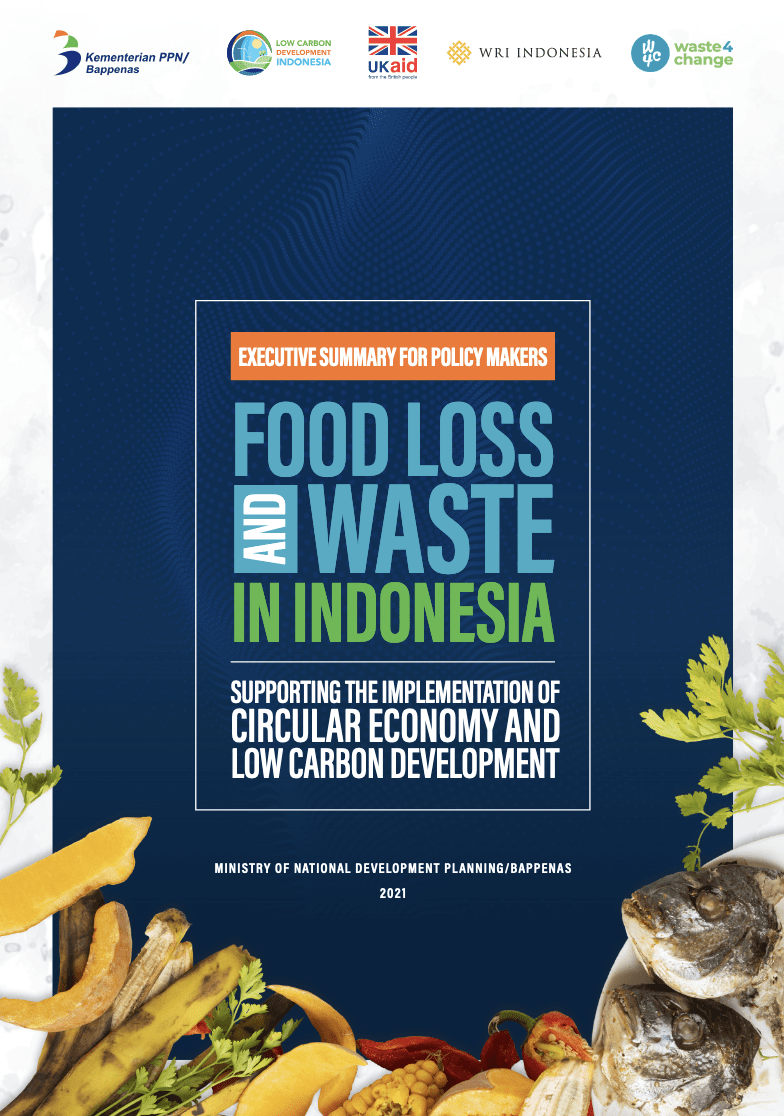Food Loss and Waste in Indonesia, Supporting the Implementation of circular economy and low carbon development
26 10 21
As a country that was agreeing on the global development agenda, Indonesia has committed to supporting the Sustainable Development Goals (SDGs) and greenhouse gas (GHG) emission reduction targets following the Paris Agreement in 2030. This commitment is demonstrated by mainstreaming the SDGs' goals, targets, and indicators in the National Medium Term Development Plan (RPJMN) 2020 - 2024 and prioritize Low Carbon Development programs in National Priority (PN) 6: Build the Environment, Improving Disaster Resilience, and Climate Change. In addition, under the Low Carbon Development program, the Government of Indonesia is also developing the Circular Economy policy as an approach to encourage green and sustainable economic growth









